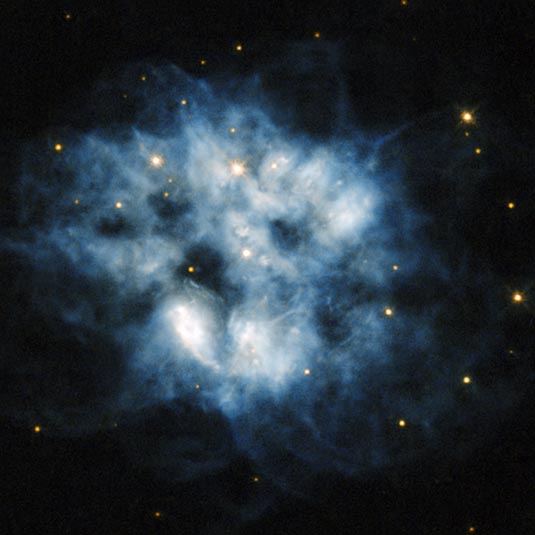
Planetary Nebula
RA 07hr 47m 26.27" Dec -27° 20' 06.6"
Puppis
12.5
19 arc-seconds
12,000 light years
ESA/Hubble & NASA, Ack:: Luca Limatola, Budeanu Cosmin Mirel
September 30, 2013
ABOUT THIS IMAGE:
This NASA/ESA Hubble Space Telescope image shows the planetary nebula NGC 2452, located in the southern constellation of Puppis. The blue haze across the frame is what remains of a star like our Sun after it has depleted all its fuel. When this happens, the core of the star becomes unstable and releases huge numbers of incredibly energetic particles that blow the star's atmosphere away into space.
At the center of this blue cloud lies what remains of the nebula's progenitor star. This cool, dim, and extremely dense star is actually a pulsating white dwarf, meaning that its brightness varies over time as gravity causes waves that pulse throughout the small star's body.
NGC
2452 was discovered by Sir John Herschel in 1847. He initially defined
it as "an object whose nature I cannot make out. It is certainly
not a star, nor a close double star [...] I should call it an oblong planetary
nebula". To early observers like Herschel with their smaller telescopes,
planetary nebulae resembled gaseous planets, and so were named accordingly.
The name has stuck, although modern telescopes like Hubble have made it
clear that these objects are not planets at all, but the outer layers
of dying stars being thrown off into space.